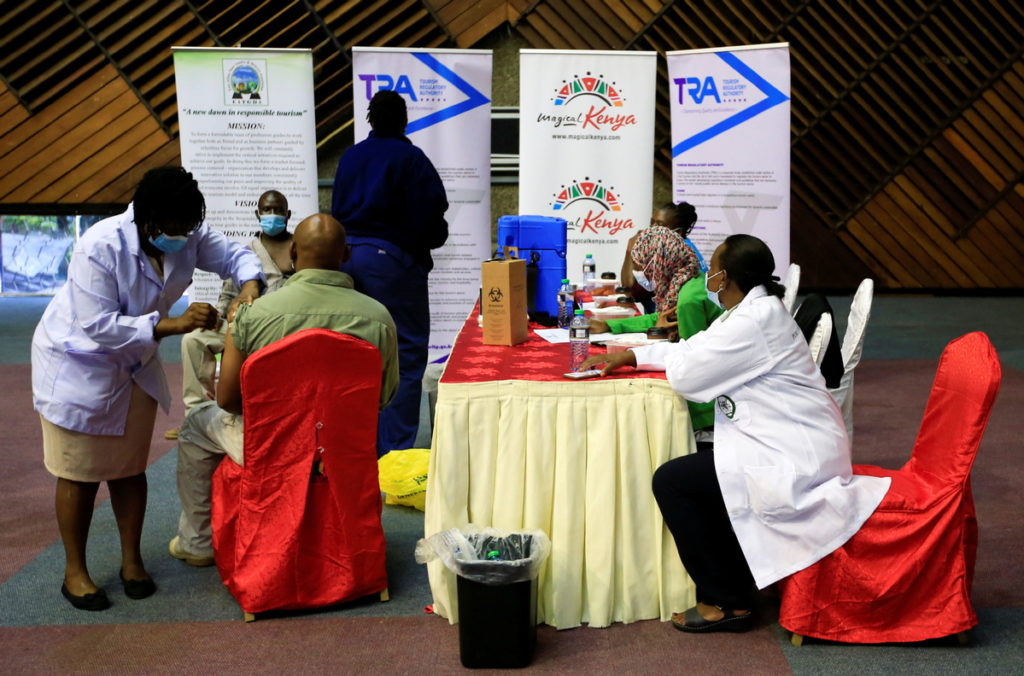Africa risks a new wave of coronavirus infections due to slow vaccine rollouts and spread of new variants amid delays of vaccines from the Serum Institute of India, the World Health Organization has warned.
While globally, 150 doses of the vaccine have been administered per 1,000 people, in sub-Saharan Africa it’s about eight doses per 1,000 people, the UN agency said.
It said the low vaccination coverage places African countries at higher risk of a massive upsurge in cases.
The WHO said initial deliveries through COVAX to 41 African nations have been staggered since early March, yet nine countries have administered less than a quarter of the doses they have, and 15 countries have given less than half. However, nine countries have given all of their COVAX doses.
“While we call for vaccine equity, Africa must also knuckle down and make the best of what we have. We must get all the doses we have into people’s arms,” Matshidiso Moeti, the WHO regional director for Africa, said.
“It’s a race against time and the virus. Given the limited supply we recommend that countries prioritize giving the first dose to as many high-risk people as possible in the shortest amount of time.”
Moeti said temporarily waiving patent protections for coronavirus vaccines and medicines at the World Trade Organization could be a game-changer for Africa, unlocking millions more doses and saving countless more lives.
“We commend the leadership shown by South Africa and India and urge others to back them at the WTO, including for life-saving therapeutics. We hope negotiations are quickly wrapped up so we can ramp up the manufacturing and roll-out of safe and effective vaccines. No country is safe until all countries are safe,” Dr Moeti said.
Moeti said new variants also place the continent at risk of a third wave.
She said the B.1.617 variant that was first found in India has been reported in Africa. The B1.351 strain, first found in South Africa, is spreading in 23 African countries and the B1.1.7 strain, first found in the United Kingdom, has been found in 20 countries.
“The tragedy in India does not have to happen here in Africa, but we must all be on the highest possible alert. Governments must maintain strong surveillance and detection systems, reassess and bolster their treatment capacities, step up the supply of critical medicines, including medical oxygen and ensure there are enough beds for severely ill patients,” Moeti said.
Moeti said the coronavirus infection curve has plateaued in the past six weeks, resulting to a slight decrease in cases in the past two weeks.
Currently, Africa has recorded almost 4.6 million infection cases and 123,000 deaths.
Moeti said WHO is supporting countries to increase their oxygen supplies by providing technical assistance to high-risk countries on how to build oxygen production plants, as well as delivering more than 3,500 oxygen concentrators.
She added that the UN agency is also collaborating with professional medical and nursing associations on the continent to scale up critical care training in member states.
